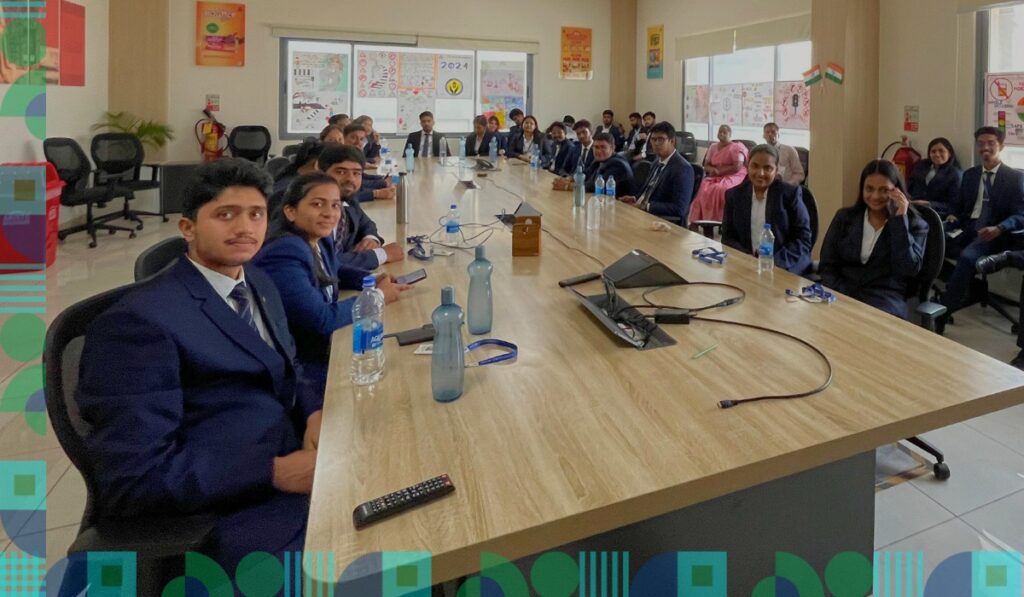The Tech Learning Formula That Actually Works

“The future belongs to those who prepare for it today.” – Malcolm X
If you’re a student stepping into the world of technology, you’ve probably asked yourself these questions more than once:
- Will I actually get a job, or just a degree?
- Am I learning skills that companies even care about?
- Will I survive my first hackathon without embarrassing myself?
You’re not alone. The tech industry is booming, but so is competition. With AI, blockchain, and cloud computing rewriting job descriptions overnight, the pressure to stay relevant is real.
But here’s the secret: Success in tech isn’t about memorising syntax or surviving nightmarish exams. It’s about mastering real-world problem-solving, building a strong technical foundation, and developing industry-ready skills.
Beyond the Textbooks: The Real Tech Learning Formula
A great tech programme isn’t just about stuffing your brain with Python, Java, or C++. It’s about making you industry-ready with the right blend of theory, application, and innovation. Here’s what separates a future-proof tech programme from an outdated one:
1. Project-Based Learning – Because “cramming for exams” won’t cut it.
Imagine this: Two candidates apply for the same job. One has a degree; the other has a degree plus a portfolio of real-world projects. Who do you think gets hired?
Studies show that students engaged in project-based learning are 58% more likely to get hired right after graduation (National Association of Colleges and Employers). Whether it’s building a working chatbot or developing a cybersecurity model, hands-on projects prepare you for real-world challenges.
2. Hackathons & Tech Symposiums – The Olympics of the coding world.
Think of hackathons as the ultimate test of your problem-solving skills under pressure. They’re not just competitions; they’re networking events, innovation hubs, and the birthplace of some of the world’s most successful startups.
Did you know Dropbox started as a hackathon project?
Back in 2007, a young MIT student named Drew Houston kept forgetting his USB drive. Frustrated, he started working on a simple solution—a cloud-based storage system that would let users access files from anywhere. What began as a side project soon turned into a game-changer when he showcased his idea at a hackathon.
The concept caught attention, investors lined up, and in just a few years, Dropbox was born—now a company valued at over $8 billion.
So, the next time you think hackathons are just for fun, remember: your next big idea could be a billion-dollar startup! 🚀
Some universities even conduct Information Symposiums, where students present innovative tech solutions and debate emerging trends. These experiences help boost confidence, critical thinking, and creativity—qualities that tech giants look for in employees.
3. Industry-Relevant Certifications – Because recruiters love those fancy badges.
A degree alone isn’t enough anymore. Employers want proof that you have the skills they need. Certifications in Cloud Computing, Data Science, Cybersecurity, and AI can give you an edge over other applicants.
According to the LinkedIn Workplace Learning Report, 93% of employers say soft skills (like problem-solving and teamwork) are just as important as technical expertise. Tech programmes that incorporate industry certifications alongside technical training make sure you graduate with both.
4. Internships & Industry Tie-Ups – The bridge between education and employment.
Real-world experience is non-negotiable. Tech firms prioritise candidates with hands-on industry exposure, which is why the best institutions offer internships, live projects, and corporate partnerships.
Big companies like Google, Amazon, and TCS actively recruit from institutions that integrate experiential learning rather than just textbook theories. If you’re studying tech, make sure your programme has strong industry connections.
Let’s Debug The Market
If you’re skeptical about the impact of these learning experiences, let’s look at some numbers:
✅ 58% of students with real-world project experience get job offers faster than those without (National Association of Colleges and Employers).
✅ 93% of employers say soft skills (teamwork, problem-solving, adaptability) are just as crucial as technical knowledge (LinkedIn Workplace Learning Report).
✅ The global tech industry is projected to grow to $12.5 trillion by 2025, meaning there’s no shortage of opportunities—if you have the right skills (IDC Research).
Choosing the Right Tech Course Matters
With technology evolving at breakneck speed, choosing the right programme isn’t just about getting a degree—it’s about future-proofing your career. The right course structure can open doors to top-tier jobs, high-paying salaries, and exciting opportunities in AI, cybersecurity, cloud computing, and software engineering.
Why ASBM University Stands Out for Tech Education
At ASBM University, technology education isn’t just about earning a degree—it’s about building a future-ready career. The university offers B.Tech in CS & IT, M.Tech in IT, MCA, and BCA, designed to shape students into industry-ready professionals with a strong foundation in emerging technologies like AI, cloud computing, and cybersecurity.
ASBM University follows the National Education Policy (NEP) 2020, ensuring a flexible, multidisciplinary, and skill-oriented curriculum that prepares students for the next era of technology-driven careers. The university has also partnered with Blackbuck, a leading career-preparedness platform, to provide students with hands-on industry experience, internship opportunities, and professional skill development—giving them an edge in today’s competitive job market.
What makes ASBM truly unique is its case-based teaching pedagogy, where students learn through real-world scenarios, industry case studies, and experiential learning methods. This practical approach bridges the gap between classroom education and real-world application, making ASBM graduates highly sought-after by top MNCs.
For students looking to build a successful career in technology, ASBM University offers the perfect launchpad—combining academic excellence, corporate connections, and future-ready learning strategies.
The Final Thought: Will You Be Ready for the Future?
If there’s one truth about the tech industry, it’s this: It rewards those who stay ahead of the curve.
The difference between a graduate struggling to find a job and one landing multiple job offers often comes down to the quality of education, hands-on learning opportunities, and industry exposure.
So, the real question isn’t just “Where should I study tech?”
It’s “Where will I study tech AND land a great job?”
Because in an industry where innovation never stops, choosing the right programme today could define your career for years to come.



